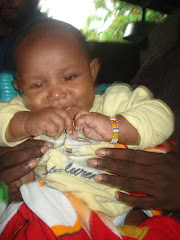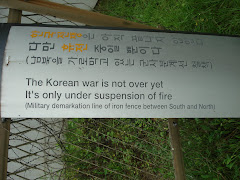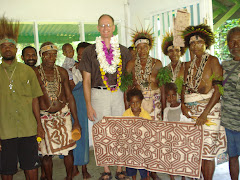Friday, May 22, 2015
“Omnia uno tempore agenda.” Julius Ceasar (Everything had to be done at once)
Well, now I am into it.
Rather: We are into it. The roller coaster of change is galumphing along some pretty dicey tracks, too, if you ask me. But this perception is very likely a projection of my own anxiety, as I am learning in my devotional reading.
Books have always been my friends, and during our Provincial Chapter meeting last week Chapter members were strongly encouraged to read two books. The first is William Bridges “Managing Transitions: Making the Most of Change.” So I downloaded the third edition to my Kindle and have been plowing through all the business jargon. Talk of managers, employees, products and competition is a bit dull for me, but it requires no big effort to see how patently necessary it is that we brothers read this book.
Bridges validates the confusion and chaotic feelings, the creative and sometimes desolating in-between times and offers good pointers about the new beginnings. I thought of this book tonight during Evening Prayer when the psalmist in Psalm 107 says “They cried to you in their trouble…” and later: “and you brought them to the harbor they were bound for.” A warm glow spread through my chest when I prayed this. It doesn’t say exactly which harbor—but they survived to sing about it.
During Chapter we were given several voyages to speculate about. Two brothers said their farewells to the Society; where will I be in three or four years’ time? Prospective homes for the friars were suggested: “Trust me,” the Bishop said. Some brothers have found places to live singly for the time being: there’s a choice to wonder about. And we heard about some men who are determined to come aboard and voyage with us, testing their vocations to this life: it makes the heart glad.
Bridges is generous in his book, giving readers different ways to get his message. I especially love the literary bon mots that pepper the text because they are at least from people I have heard of (i.e. not CEO’s of strange-sounding corporations). And these quotes express some of the contradictory feelings I have and which Bridges thus validates by including the statements in his book. This from Ogden Nash: “What I’d like is some nice dull monotony, if anyone’s gotony.” Amen. S.A. Tartakover, a Russian chess master speaking of the chess board at the beginning of a game: “The mistakes are all there waiting to be made.” But I suppose Anne Morrow Lindbergh lays down the law, so to speak, of managing transitions: “only in growth, reform and change, paradoxically enough, is true security to be found.”
We’ve got our Strategic Plan; we have all signed on to it and taken on what we must. So now the proof of the pudding will be in the tasting of it. We have to dig into this transition to discover another home in this world which is passing away.
We were treated to another book called “When the Past is Present” by David Richo, who gave us a day-long workshop on Letting Go (let the reader understand). Rarely have I read a book written just for me! I’ve already read it twice and am now marking my copy up, thirsty for its wisdom. It speaks to me of the need to be clear about who I am reacting/responding to—present reality or somebody/place from my past? The core discipline is practicing mindfulness, naming what I’m feeling, allowing all the feelings to be my teachers and letting them go. In all of this awareness one is strengthening their spiritual awareness of the beauty of the transitory nature of life.
Br. Jude, our Minister Provincial referenced the analyst Jung in his address to chapter: God is what comes across our path, causing confusion. So definitely this time is about God, defying expectations. It is a challenge and invitation to be open to all the things I’ve talked about so glibly before: prayer, patience, and mindfulness to name three! I feel invited to wrestle with the things I carry over from my past: family and childhood experiences. As David Richo says, “to wrestle respectfully as Jacob did with the angel, until it yields its blessing. The blessing is the revelation of what we missed or lost and the grace to grieve it rather than transfer it.” Transference is natural, everybody does it, and it can wreak havoc when it is freighted with pain and negativity.
God’s grace is always apt and abundant. Scripture should always be meaningful, but sometimes my attention wanders. Yet tonight I was touched. When I am feeling tender the Spirit is there helping me. In the Gospel lesson for Evening Prayer the Spirit said to the Church in Jesus’ defense to Martha of Mary’s engaged listening: “She has chosen the better part.” Amen. God give me ears to hear you!
Pray for us!
Saturday, May 9, 2015
Good-bye Little Portion

This week I left Little Portion Friary (pictured both in this post and as the new header for this blog). The brothers voted in September last year to sell the friary, and when word got out that it was for sale, Fr. Frank Pizzarelli of Hope House Ministries offered to buy it. It will be home to perhaps two dozen young men in recovery for addiction to alcohol and drugs. This wonderful ministry got its start in the guest house of Little Portion Friary 35 years ago. The brothers are retaining the graveyard, the county is negotiating for the forest, and Hope House will take over the buildings and use the property immediately around the friary. Fr. Frank has said he intends to keep the labyrinth open to the public, the outdoor chapel will remain, and the young men will be trained to bake bread so that the long tradition of fresh home made bread will be maintained. It is the happiest possible outcome short of an influx of 10 or 15 young men wanting to be friars...
I built this labyrinth in 1998, though it could have been a year earlier: memory fails me for precise details. We initially developed a practice of holding labyrinth walks on the night of the monthly full moons. A potluck meal started the evening, then the brief talk and orientation, people walked (or didn't, as they preferred) then a meditative Taize-style prayer service concluded the evening. We had some truly marvelous evenings. I remember the first time we were very concerned if there would be enough food, and indeed, the only thing people brought were cookies. We were pretty strung out on sugar. But after that, the beauty and diversity of foods was fabulous.
Over the years I have given innumerable talks about the labyrinth as a way to prepare people for walking it. Thinking about the labyrinth helps me to reconcile with the upheaval in my life right now. The first part of the walk, the walk into the center is an invitation to be present to what one is feeling. Good, or bad, it is good to allow the feelings to surface, acknowledge them--perhaps standing still and letting others walk past--before continuing on. I always found tripping along the outer edge the most desolating, memories of feeling far from the center or purpose of my life coming up for me. But turning in I'd remember happier times: the whole emotional gamut was often present for me. As I turned the corners of the labyrinth, I believe the turning would in someway stimulate my brain much in the way the brain is stimulated by EMDR. Deeper insights often came from walking the twisting path--walking itself is another way to stimulate the brain: left, right, left, right.
Finally I arrive in the center, the "liturgical" place for transformation, enlightenment, transfiguration. I say liturgical in quotes because the simile is inexact, but gets the point across I think. During Communion in the Holy Eucharist is the liturgical moment for connection with God, transformation, forgiveness, enlightenment, but often I don't feel any of those things. But once in a while I do. Whether I feel them or not I know at the heart and center of my life as a whole these things will take place. I believe everybody has such a moment in their life--but they are rarely engineered successfully. The moment arrives stealthily, like a thief in the night Jesus says.
Then comes the walk out, the "so what" walk. "What difference did this walk make in my life" That might be asking a lot of a labyrinth walk, especially if it is dark and disorienting, the food was gone or you feel sand bagged by too much information from without or within. But taking 20 minutes for yourself to be present to your feelings and to be open to a larger connection can perhaps be all that is needed to have enough clarity to relax a little bit. Or to realize you need to apologize to somebody. Or to remember their is more to life than rushing to the next thing. Maybe it is just being outside in the muggy evening, or the mist and rain, the frost glinting in the moonlight that reminds you or your creatureliness.
So I am trudging on my life path, feeling very grateful for the last 25 years at Little Portion, and very sad about leaving; I feel happy and grateful for the future for the place and wondering what is in store for me and my brothers. But the essential sense of connection with God, the awareness of connection with other people and the earth--that place in Mount Sinai as well as so many other places around the globe where I have put down roots--remains with me. To assess the past 25 years, the "So what" I have to acknowledge the huge impact of my brothers on my life, the gift of sobriety which is a big part of my story in building the labyrinth, in using it, and in my ministry and life as a whole.
The labyrinth has been a way to enlarge my sense of life, I have experienced wholeness, healing, freedom in connection with it. So now I take these things, which can never be taken away, and apply them to where I am now. I am not diminished by the loss, I am not homeless either.
The name of this blog is "The World is my Friary" an adaptation of St. Francis' statement that the world is his cloister. Francis was forced to move on from Rivo Torto and lived an itinerant life, often a mendicant one. The dependence on the generosity of others and the abundant grace of God kept Francis growing and deepening. What some thought of setbacks he praised God for poverty, chastity, even hunger and tiredness because in all things he came to know the way of Jesus Christ and the abundance of God love for all creation revealed in the life, death and resurrection of Jesus Christ.
So I need to walk my talk: depend on God, be open to the prompting of the Spirit, seek ever widening circles of freedom, generosity, love and compassion. I often just pray to be kinder and more patient! Where the journey will end, where I will finally unpack my seven boxes of memory drenched trinkets, books and fraying clothes I don't know (they are in storage for now, and I am exulting in the freedom of 4 shirts, one pair of jeans and one pair of shorts!).
I also believe that the Church is facing a paradigm shift, we are seeing he emergence of new forms of worship, new kinds of community life, both religious orders and parish types. Paradigm shifts sound beautiful and easy, and perhaps a bit abstract. But they are painful as hell, and living in between the grinding stones may provide substance for the future, but I wouldn't seek it out. Obviously God is behind it, making all things new, whether we participate reluctantly or enthusiastically. Its my decision if I make myself miserable with all of this or not, and I am choosing the joy. I have so much to be grateful for, so much to look forward to: the world is indeed my friary and my home.
Subscribe to:
Comments (Atom)





